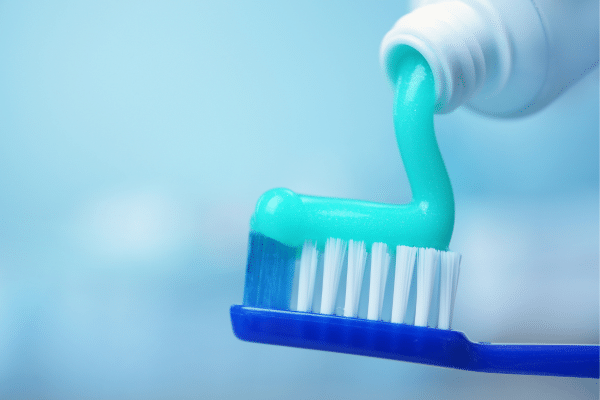Fluoride, a mineral found in water, soil, and various foods, has sparked significant debate over its impact on health. Commonly added to public water supplies and oral hygiene products like toothpaste, fluoride is hailed for its dental benefits, particularly in preventing tooth decay and strengthening tooth enamel. However, concerns about its potential adverse health effects continue to fuel discussions among health professionals and the general public. This post delves into the multifaceted nature of fluoride, exploring its history, benefits, and the controversies surrounding its use, to provide a well-rounded perspective on this ubiquitous mineral.
Contents
History And Use Of Fluoride

The journey of fluoride in public health initiatives began in the early 20th century, with the discovery of its dental benefits. Researchers noticed lower incidences of tooth decay in areas with naturally higher fluoride levels in water. This led to the widespread adoption of water fluoridation, a practice intended to reduce dental health disparities. Over the years, fluoride has become a staple in preventive dentistry, endorsed by numerous health organizations for its effectiveness in maintaining oral health.
The inclusion of fluoride in dental care products underscores its significance in everyday health regimes. Toothpastes and mouthwashes fortified with fluoride are recommended for their role in reducing cavities and enhancing the remineralization of tooth enamel. This proactive approach in dental health has contributed significantly to the decline in dental caries worldwide, affirming fluoride’s role as a cornerstone in oral hygiene.
Benefits Of Fluoride

Fluoride’s primary benefit lies in its ability to combat tooth decay, a prevalent health issue affecting individuals across various age groups. It aids in the remineralization of tooth enamel, the hard outer layer of teeth, thereby enhancing its resistance to acid attacks from bacteria in the mouth. This process is crucial in reversing early signs of tooth decay and preventing the progression of cavities.
Studies have consistently shown that fluoride reduces the incidence of cavities by about 25% in children and adults. This is significant, considering dental caries remains one of the most common chronic diseases globally. Communities with fluoridated water have observed marked improvements in oral health, particularly among populations with limited access to dental care. These benefits underscore the value of fluoride as an effective tool in public health policies aimed at improving dental health.
Common Concerns And Myths About Fluoride

Despite its documented benefits, fluoride is often the subject of misconceptions and unfounded fears. One common concern is the belief that fluoride is unnatural and harmful. However, fluoride is a naturally occurring mineral, and its addition to water supplies merely adjusts the concentration to levels beneficial for dental health. The process mimics the natural presence of fluoride in some water sources, ensuring safety and efficacy.
Another widespread myth is that fluoride causes serious health problems. Scientific research, however, consistently supports the safety of fluoride at recommended levels. The fears often stem from confusion between the effects of naturally occurring fluoride and those caused by excessive exposure. While high levels of fluoride can lead to conditions like dental or skeletal fluorosis, these instances are rare and typically associated with areas having naturally high fluoride concentrations in water, far above the amounts used in public health initiatives.
Potential Side Effects Of Fluoride

Overexposure to fluoride, although rare, can lead to certain adverse effects. Dental fluorosis is the most common, typically manifesting as mild changes in the appearance of tooth enamel. This condition often occurs when children consume fluoride in amounts exceeding the recommended levels, especially during the years when their teeth are developing. While usually a cosmetic concern, dental fluorosis underscores the importance of monitoring fluoride intake in young children.
Skeletal fluorosis, a more serious but rare condition, results from long-term exposure to large amounts of fluoride. This can lead to pain and damage to bones and joints. However, it is important to note that skeletal fluorosis is primarily associated with areas where drinking water contains fluoride levels far exceeding those recommended for dental health. Such extreme cases highlight the need for careful regulation and monitoring of fluoride levels in public water supplies to ensure they remain within safe limits.
Regulatory Standards And Safety Measures

Health organizations worldwide have set regulatory standards for fluoride in drinking water and dental products. These standards are based on extensive research and are regularly reviewed to ensure they reflect the latest scientific findings. The aim is to maximize the dental benefits of fluoride while minimizing the risk of overexposure.
In addition to setting standards, various safety measures are implemented to monitor fluoride levels in public water systems and in dental care products. Regular testing and adjustments ensure that fluoride concentrations remain within the recommended range. These safety measures are crucial in maintaining public trust and ensuring that the benefits of fluoride are delivered effectively and safely.
Alternatives To Fluoride

For those seeking fluoride-free options in dental care, alternatives are available. Products containing xylitol, a natural sweetener, have been shown to reduce the risk of cavities. Xylitol works by inhibiting the growth of bacteria that cause cavities, offering a different approach to oral hygiene.
However, while these alternatives can be effective, they may not offer the same level of protection against tooth decay as fluoride. It is important for consumers to weigh the benefits and limitations of these alternatives. Consulting with dental professionals can help in making informed decisions about the most suitable products for individual dental care needs.
Personal Choice And Public Health Policy

The debate over fluoride often centers on the tension between individual choice and public health policy. Some argue that mandatory water fluoridation overrides personal choice, while others emphasize its role in promoting overall community health. This debate is complex, touching on ethical, societal, and health considerations.
The varied policies on fluoride use around the world reflect this complexity. Some countries widely embrace water fluoridation, while others opt for alternative approaches. The decision to use fluoride, whether at the individual or policy level, should be informed by a balance of scientific evidence, ethical considerations, and public health priorities.
The Bottom Line
Fluoride remains a topic of debate, with discussions often polarized between highlighting its benefits and raising concerns about its safety. The evidence, however, leans strongly towards the benefits of fluoride in preventing tooth decay and maintaining oral health, particularly at the community level. The key is in the dosage – fluoride, like many substances, is beneficial in the right amounts but can cause problems if excessively consumed. As with many public health interventions, the use of fluoride requires a balanced approach, taking into account individual choices, scientific evidence, and community health needs. This discussion underscores the importance of ongoing research and informed decision-making in public health policies.


